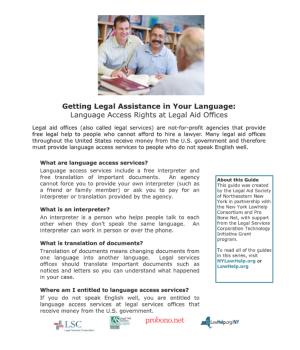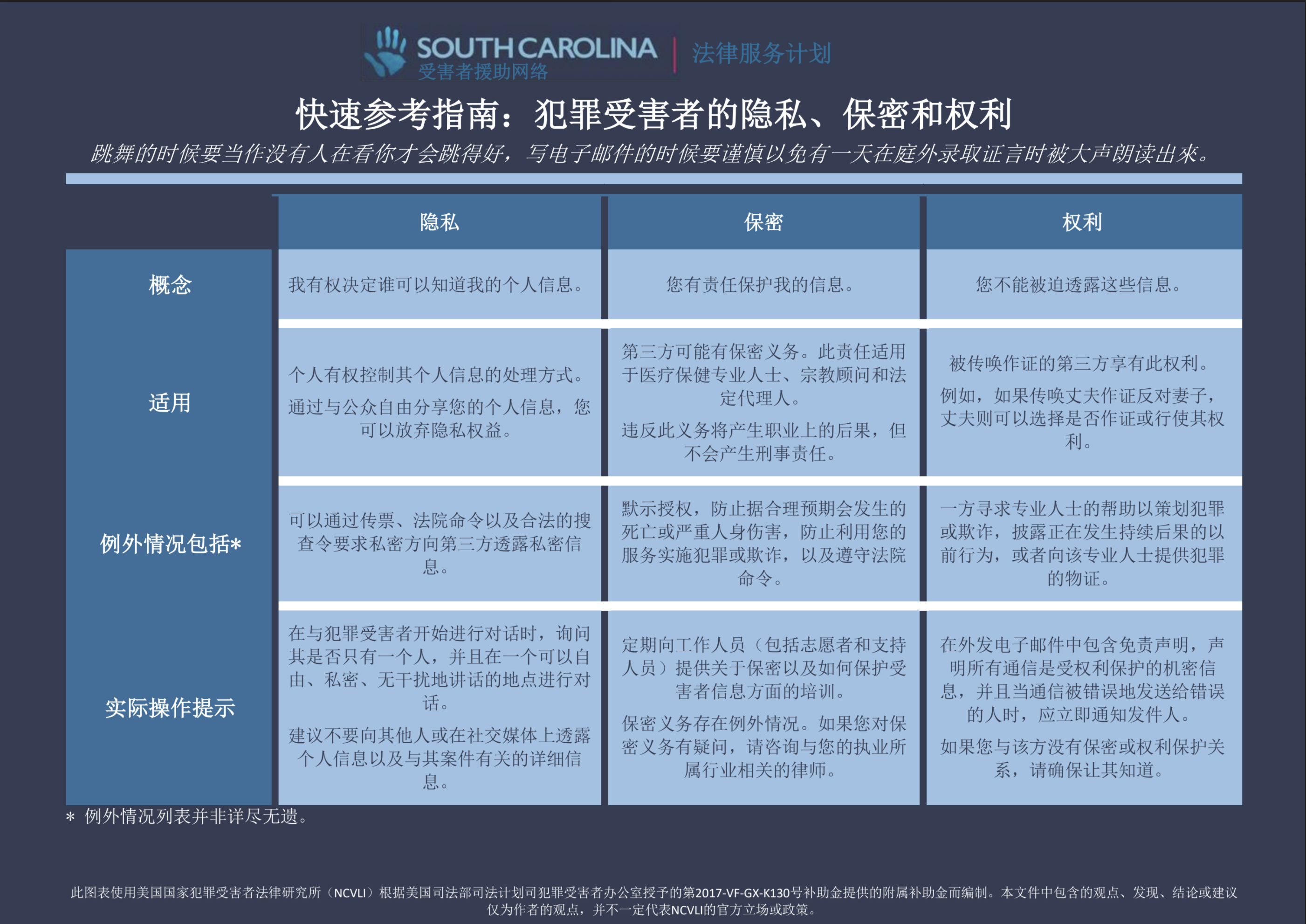Language Access
View resources on how to obtain language assistance. We have also included several resources found on our website in four other languages: German, Spanish, French, and Mandarin.
Are you a victim advocate in need of language access resources?
Join the Zoom Victim Advocate Network, a pilot program designed to support victim advocates across South Carolina in serving Limited English Proficient (LEP) communities. This network connects you with bilingual volunteers statewide to help bridge language barriers when communicating with victims. Our goal is to provide multilingual services, expert training, and opportunities to share best practices, all while fostering peer support relationships. The platform also enables real-time collaboration for victim and witness interviews, as well as document sharing, ensuring seamless and effective advocacy. Be part of this transformative network to enhance your ability to serve the LEP community with greater efficiency and compassion.
Contact David Nieves, Richland County Sheriff’s Department, Victim Advocate / Community Outreach for more information: dnieves@rcsd.net.
- Getting Language Access
- Deutsche
- Español
- Français
- 普通話

Getting Language Assistance
The federal government and those receiving assistance from the federal government must take reasonable steps to ensure that LEP persons have meaningful access to the programs, services, and information those entities provide. This may require agencies to develop creative solutions to address the needs of this ever-growing population of individuals whose primary language is not English.

Working With an Interpreter in a Legal Setting
It is important to remember that the use of an interpreter always extends the length of any interaction. Plan on dedicating twice the amount of time that you normally would need if you are using an interpreter.

Your Right to Assistance in Your Language
In addition to using in-person interpreters, the use of telephonic and remote audio foreign language interpreter services is approved for use in the Circuit and Family Courts in South Carolina. Telephonic and remote audio foreign language interpreter services may be used in the Summary Courts of this State for non-capital initial appearances, bond hearings, preliminary hearings, guilty pleas, motions, and trials.

Sicherheits Planung

Kurzanleitung: Immigrationshilfe für Opfer von Kriminalität

Kurzanleitung: Datenschutz, Vertraulichkeit und Privileg von Kriminalitätsopfern

Planficación de Seguridad

Guía de referencia rápida: exención migratoria para víctimas de delitos

Guía de referencia rápida: privacidad, confidencialidad y privilegios de las víctimas de delitos

Planification de la Sécurité

Guide de référence rapide : Aide à l’immigration pour les victimes de crimes ou de délits graves

Guide de référence rapide : Vie privée, confidentialité et privilège des victimes de crimes et délits graves
This website is funded through under Grant No. 2020-V3-GX-K016, awarded by the Office for Victims of Crime, Office of Justice Programs, U.S. Department of Justice. The opinions, findings, and conclusions or recommendations expressed in this website are those of the contributors and do not necessarily represent the official position or policies of the U.S. Department of Justice.
This website was made possible by a subgrant from the National Crime Victim Law Institute (NCVLI) pursuant to Grant No. 2017-VF-GX-K130, awarded to NCVLI by the Office for Victims of Crime, Office of Justice Programs, U.S. Department of Justice. The opinions, findings, conclusions or recommendations expressed are those of the author(s) and do not necessarily represent the official position or policies of NCVLI.
This Web site is funded through a grant from the Office for Victims of Crime, Office of Justice Programs, U.S. Department of Justice. Neither the U.S. Department of Justice nor any of its components operate, control, are responsible for, or necessarily endorse, this Web site (including, without limitation, its content, technical infrastructure, and policies, and any services or tools provided).
This Web site was made possible by a subgrant from the National Crime Victim Law Institute (NCVLI) pursuant to Grant No. 2017-VF-GX-K130, awarded to NCVLI by the Office for Victims of Crime, Office of Justice Programs, U.S. Department of Justice. The opinions, findings, conclusions or recommendations expressed are those of the author(s) and do not necessarily represent the official position or policies of NCVLI.
© 2023 | PRIVACY POLICY | TERMS & CONDITIONS



